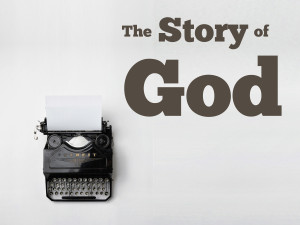 We believe that the Scriptures are the holy Word of God. Our God reveals himself to us — his name, his character, his will, his ways — in the Bible. And the Bible is the authority for God’s people. We will always stand on that; we’ll never shy away from the Scriptures as the authority for disciples of Jesus. And we believe just as strongly that how we read and interpret and apply the Scriptures is very important.
We believe that the Scriptures are the holy Word of God. Our God reveals himself to us — his name, his character, his will, his ways — in the Bible. And the Bible is the authority for God’s people. We will always stand on that; we’ll never shy away from the Scriptures as the authority for disciples of Jesus. And we believe just as strongly that how we read and interpret and apply the Scriptures is very important.
The Bible is a Story. It’s not a law book. One of our problems is that for decades — no, centuries! — we have read and studied and cited the Bible like it’s a law book. Law books are boring. This Story was inspired by God and handed down to us to capture us. To enthrall us. If it’s boring, we’re reading it wrong. One of the worst things that ever happened to the Bible was when they divided it up into chapters and verses in the 1500s. It has conditioned us to read it like a reference book instead of a novel. We consult it and study it and quote book, chapter, and verse like it’s an owner’s manual for your car or an employee handbook.
We struggle with this. We’ll read Jonah for three weeks, wondering whether a human can live inside a fish for three days and never once think about God. The Story is about God and what he’s doing, not about the whale and what he can do. Or we’ll argue about Paul’s words concerning divorce and remarriage, looking for loopholes, instead of dwelling on the covenant loyalty of our God who intends our marriages to reflect and witness to his perfect love and faithfulness. Esther is not about “you need to be more courageous.” It may as well be about “you need to be prettier, too.” The main point of Esther is that our God is at work to redeem everything and he uses every opportunity — even our moments in exile when we feel weak and powerless and trapped in circumstances beyond our control — to save us and redeem us. We are not forgotten. That’s the Bible as a Story.
Peace,
Allan
Leave a Reply